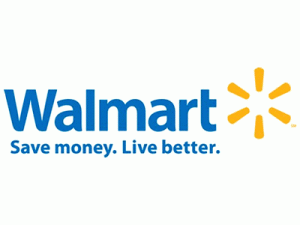 The recession has taught women how to shop for value, beyond toilet tissue, pantry staples and laundry detergent. Women are more value-conscious in 2010 for that category that once enjoyed ultra-high margins known as cosmetics.
The recession has taught women how to shop for value, beyond toilet tissue, pantry staples and laundry detergent. Women are more value-conscious in 2010 for that category that once enjoyed ultra-high margins known as cosmetics.
And where they’re finding value — along with price, convenience, and authenticity — is Walmart. According to The Benchmarking Company’s 2010 Pink Report, 71% of women in the U.S. shop for beauty and personal care products at Walmart. While Walmart was a cosmetics shopping destination before 2007 for half of U.S. women, the store has expanded its reach into new demographic segments post-recession. 8 in 10 of these women are aware of their budgets. Call them the Recessionistas.
Health Populi’s Hot Points: “We have started seeing in recent months that at midnight on the first of the month, we can see the customer there in the store, more than a year ago. That tells us that there is even more pressure on the pay cycle,” according to Walmart CEO, Mike Duke. Here is evidence that consumers are living more paycheck-to-paycheck, looking for value as a matter of their shopping ethos.
This value-based shopping ethos has hit health care, hard, over the past two years. My forecast is it’s going to stick to health and health care the way it’s sticking with other shopping. Think about employers, those of whom continue to sponsor health insurance: they’re adopting value-based purchasing in plan designs. Think about consumers, half of whom have done ‘something’ in the past year to self-ration health care utilization.
Walmart’s already a big player in health: see my previous posts on Walmart morphing into a pharmacy benefits manager, Walmart as health reformer, Walmart as health destination, and Walmart as electronic health records purveyor. As consumers take on more financial and clinical decision making responsibility in health (and a few even go full-on DIY health), they’ll look to trusted retailers like Walmart to help them project-manage their personal health and the health of loved ones. Walmart’s already positioned in personal care products, based on The Pink Report’s findings. They’ll continue to grow as a trusted health destination for more women.




 Interviewed live on BNN Bloomberg (Canada) on the market for GLP-1 drugs for weight loss and their impact on both the health care system and consumer goods and services -- notably, food, nutrition, retail health, gyms, and other sectors.
Interviewed live on BNN Bloomberg (Canada) on the market for GLP-1 drugs for weight loss and their impact on both the health care system and consumer goods and services -- notably, food, nutrition, retail health, gyms, and other sectors. Thank you, Feedspot, for
Thank you, Feedspot, for  As you may know, I have been splitting work- and living-time between the U.S. and the E.U., most recently living in and working from Brussels. In the month of September 2024, I'll be splitting time between London and other parts of the U.K., and Italy where I'll be working with clients on consumer health, self-care and home care focused on food-as-medicine, digital health, business and scenario planning for the future...
As you may know, I have been splitting work- and living-time between the U.S. and the E.U., most recently living in and working from Brussels. In the month of September 2024, I'll be splitting time between London and other parts of the U.K., and Italy where I'll be working with clients on consumer health, self-care and home care focused on food-as-medicine, digital health, business and scenario planning for the future...